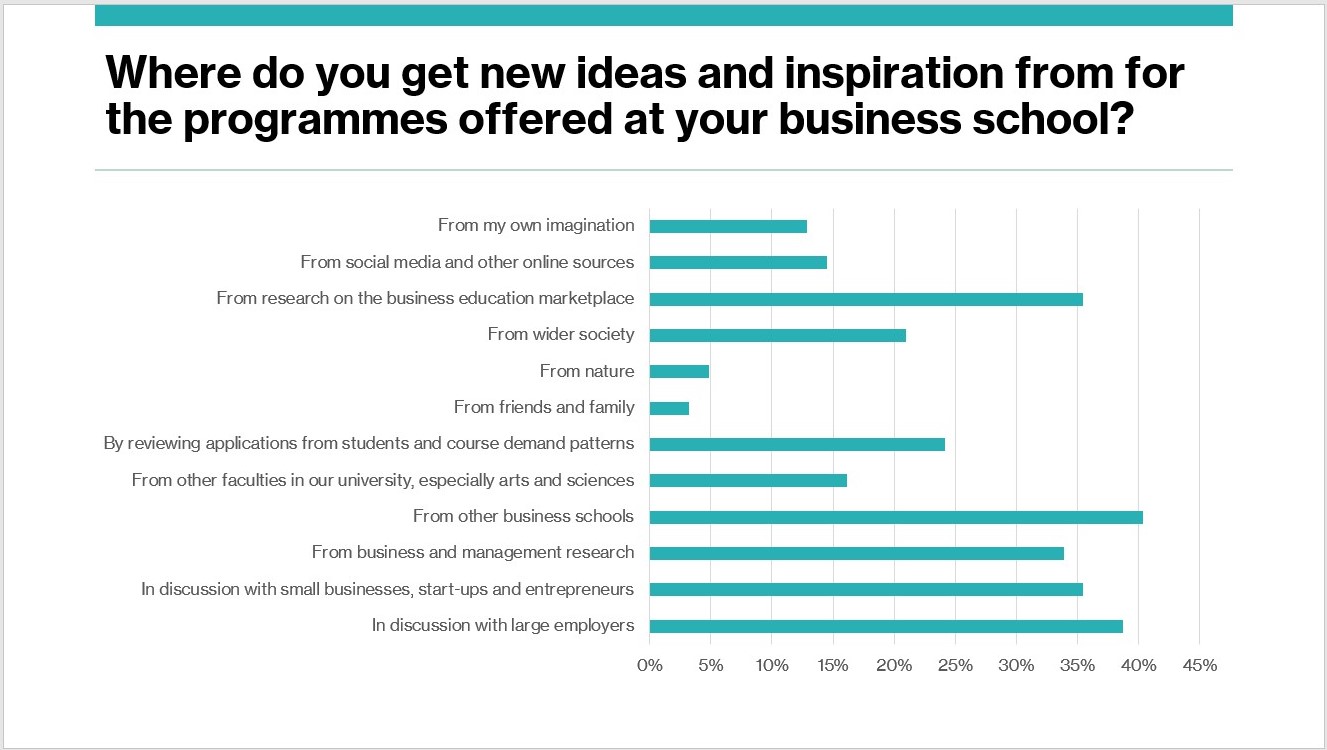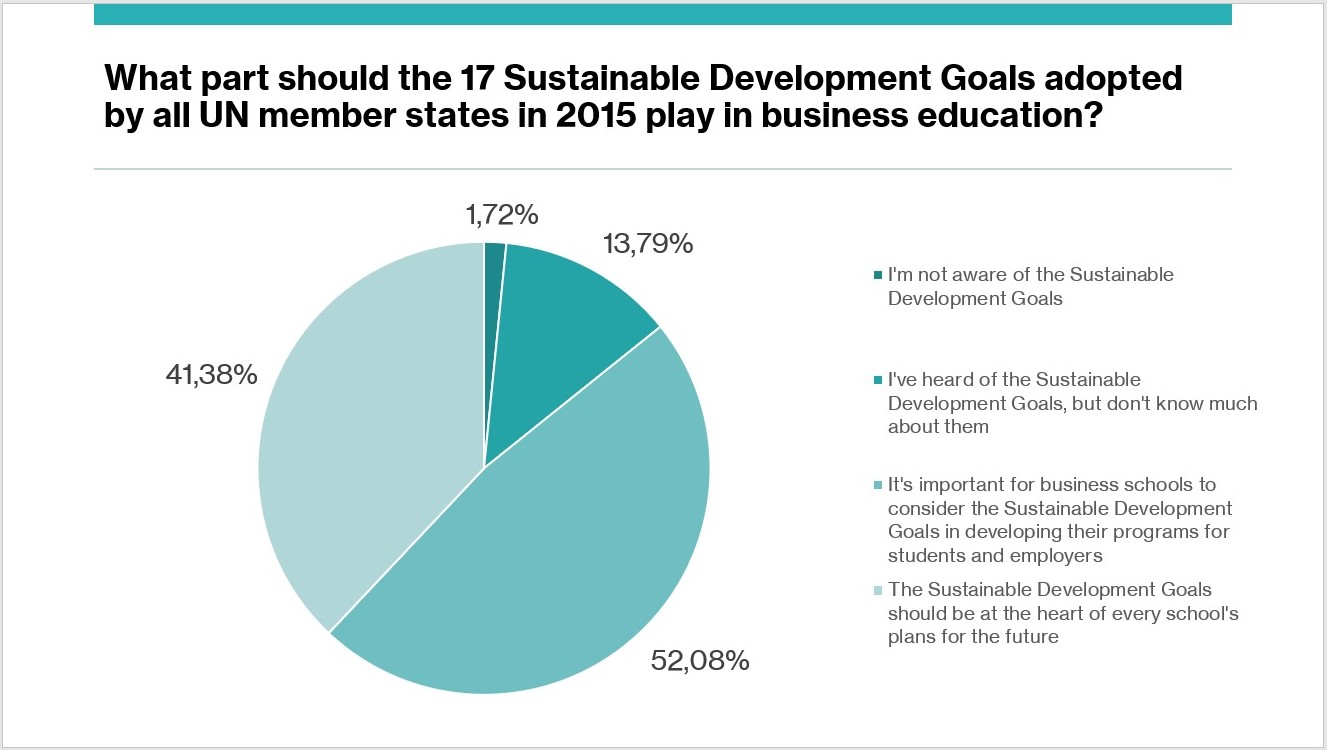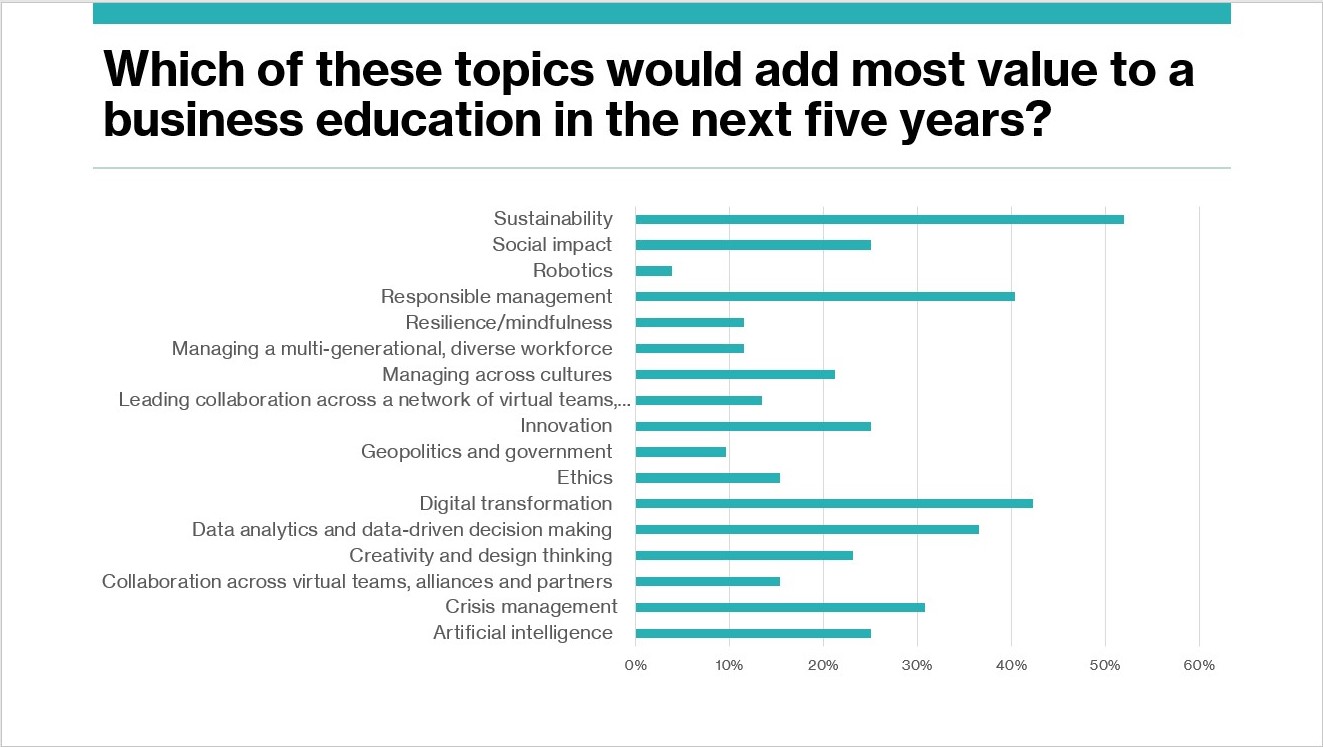Despite the problems with forecasting the future, business schools need to plan ahead and make sure the programmes, the faculty, the resources and the strategies are in place to ensure their continuing success. Participants at the recent CEEMAN Annual Conference as well as CEEMAN members were asked a series of questions to better understand their views on the future of business education.
Interestingly, it is not the pandemic but too much bureaucracy to comply with internally and externally that is likely to be the greatest barrier to success for business schools in the next ten years. Bureaucracy is seen as a problem by 73% of respondents while the impact of COVID-19 is highlighted by only 38% of those taking the survey. Nevertheless, for those 38% the impact may be as significant as school closures leading to lost opportunities for students and lost jobs for staff.
Four further barriers are highlighted by more than 1 in 5 of the respondents:
- Poor access to resources to help us develop new business models (27%)
- Lack of engagement with employers to support new programme development (27%)
- Too few suitably qualified faculty (21%)
- Insufficient time to develop new approaches to learning (21%)
Respondents are clear that the future will mean new programmes delivered in new ways, but are uncertain whether they will have the resources, staff or time to develop these courses. Many have rushed to move programmes from campus delivery to online in recent months, but are aware that so much more could be done and may have to be done with the technology already available and likely to be on offer in the coming years.
While the pandemic has forced business schools to rapidly introduce digital delivery for their teaching, for some schools it has been little more than a sticking plaster rather than a comprehensive and engaging digital experience. In recent years, CEEMAN through its EdTech has provided advice and support for schools seeking to digitally transform their offer and in 2021 will focus on how to take the next steps beyond the pandemic response.
So where do business schools already see opportunities and where do those charged with developing new programmes get their inspiration?
Three areas stand out for schools in the next decade – working with partners outside higher education to deliver new learning opportunities, chosen by 65% of the survey respondents, building stronger international partnerships to deliver programmes (63%) and growing our online/digital provision (60%).
Digital provision will not be a surprise, but a focus on international partnership when so much international travel has been curtailed in recent months will have been less expected. Schools may be looking for partners who can add capacity or skills in certain fields that they do not have themselves and there may be a need to look internationally for such resources. Similarly, schools may recognize that higher education capacity remains limited in some parts of the world and consequently, there remains a demand for international provision to meet local demand in some places.
The search for expertise may also lie behind the interest in building partnerships outside higher education. Many firms, especially those backed by technology, have entered the higher education space in recent years and are seeking partners to grow their business. Some, of course, are competitors for traditional campus-based providers, but business schools often have strong brand reputations which others are keen to leverage to help grow their offer.
Perhaps not surprisingly the main source of new ideas and inspiration for programmes at a business school are other business schools, identified by 40% of the respondents. Taking an idea that has been successful elsewhere and introducing it to another school makes sense, especially if it is backed by some local audience research; 35% of respondents found ideas and inspiration from research of the business education marketplace.

The Annual Conference highlighted some of these source for new ideas with sessions focused on the impact of biology on management education, learning from error management in high-stress situations and the role of theatre and music in building culture and compassion to support mental health in employees. Schools increasingly understand that business can’t operate in isolation and that it needs to draw on wider society and understand its impact on wider society to develop a sustainable and successful portfolio of programmes.
In the survey, three other sources of new ideas were identified by more than 30% of respondents – in discussion with large employers (39%), in discussion with small businesses, start-ups and entrepreneurs (35%) and from business and management research (34%). With demand for reskilling and upskilling increasing, aligning new programmes with employer demands, whether in small or large businesses seems to be a sensible approach to growing a programme portfolio.
Just over one in five respondents (21%) find inspiration from wider society, 5% from nature and 3% from friends and family. Business school engagement with wider society is likely to grow in the next few years. Just over half of the survey respondents (43%) think it is important for business schools to consider the Sustainable Development Goals (SDGs) in developing their programmes for students and employers, while 41% believe the SDGs should be at the heart of every school’s plans for the future.
Thinking about the wider societal role for business schools, many have already embedded certain approaches in the activities of their school. Just over half (53%) indicate they have a focus on delivering both economic and social value, 52% on inspiring leaders to create a better world and 45% on embedding an ethical approach to business.
Despite the shifting focus suggested by these responses, it feels as though many schools still have much to do to find a broad societal purpose in the work they do. Only 15% indicate that they have a focus on helping people access decent work, challenge inequality and overcome poverty, while only 13% say they have a focus on standing up and being recognised for their contribution to society.

At the conference, a session led by PRME sought to put a focus on relevance in responsible management education offer. Integrating research and teaching to produce impactful outcomes for students, faculty and businesses will put business education at the heart of change across wider society, ensuring both a sustainable and relevant offer for the future.
Asked which topics would add most value to a business education in the next five years, wider society is again a strong theme, with 52% putting sustainability as the most important topic. Four other subjects are identified by more than 30% of respondents:
- Digital transformation (42%)
- Responsible management (40%)
- Data analytics and data-driven decision-making (37%)
- Crisis management (31%)
Undoubtedly, interest in crisis management reflects the impact of the COVID-19 pandemic. In a report recently published by the Executive MBA Council (A new way of working and learning), crisis management was identified by employers as one of the least available skills among recruits.

Responsible management is closely aligned with sustainability and the involvement of business schools in wider society, while digital transformation and data analytics reflect the growing need for all businesses to have clear digital strategies for the future often based on analysis of multiple data sources.
Asked a similar question about which elements business schools should be developing in their students to support their future careers, a similar pattern of responses emerges. Four issues are highlighted by survey respondents:
- Open to work in a multi-national and multi-cultural environment (63%)
- Have a broad understanding of the global challenges facing society (63%)
- Challenge views by combining innovative and critical thinking (57%)
- Embrace digital transformation, bringing together technology and management skills (51%)
Developing critical thinking among students has been a focus for universities and business schools for many years, with survey respondents suggesting that the future means drawing on these skills to address today’s problems, whether in business or wider society.
Business schools are embracing change, not only that driven by the COVID-19 pandemic, but by a perspective on wider society, whether that’s meeting the needs of business to find managers and leaders who can tackle digital transformation, and multi-national, multi-cultural and multi-generational workforces or the global challenges of issues such as climate change, poverty, inequality and diversity.
Some schools are further ahead with these agendas than others, but are seeking inspiration for their own future by drawing on success elsewhere. Greater understanding of the marketplace, emerging new audiences for business school programmes and partnerships beyond campus, whether with other institutions or the private sector, seem likely to be key for business schools to build sustainable futures. Success in building for the future may be held back by a lack of resources, whether that’s financial, staff or time and schools will need to find innovative solutions to sustain their progress.
By Andrew Crisp, CarringtonCrisp (corporate member of CEEMAN)